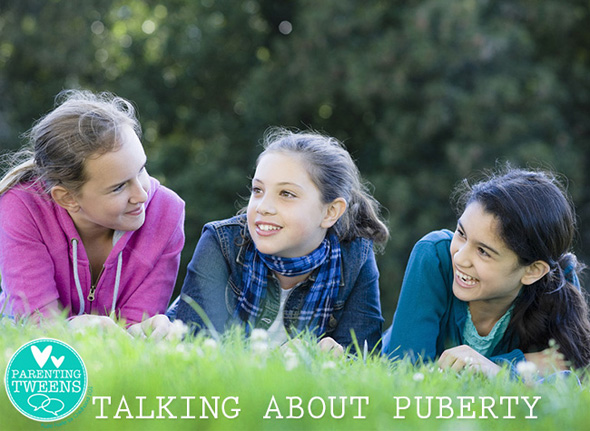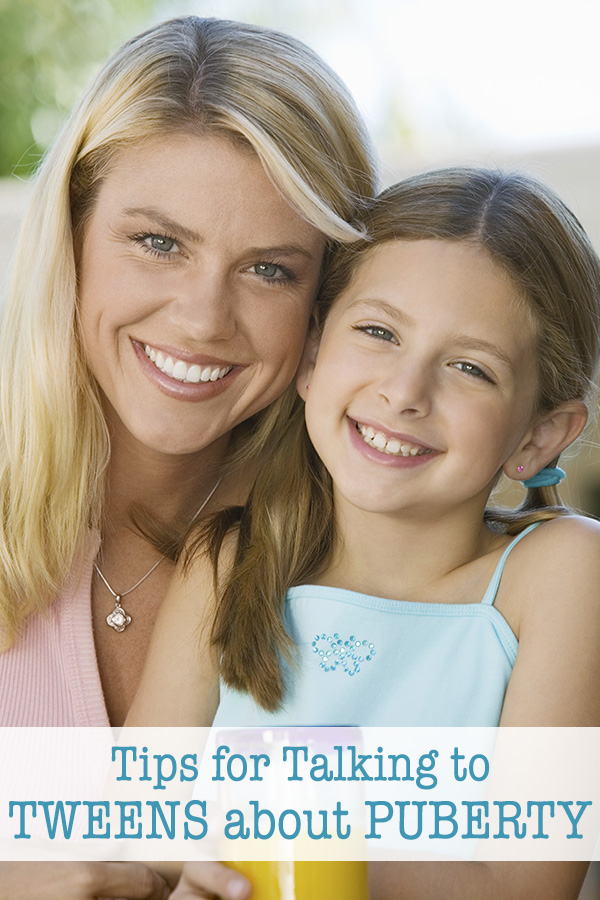Practical Tips for Talking With Your Child About Puberty
Change can be pretty scary and stressful for pre-teens or tweens, and the uncertainty of exactly what will happen during puberty can make it ever harder to deal with. But it’s not all bad and the best way to tackle puberty, the cool stuff and the kinda scary stuff, is to be prepared – it’s all part of the fun of parenting tweens.
What is Puberty?
We all remember going through puberty and we know the basics of what to expect but most of us don’t understand the science behind these changes, and understanding that can go a long way towards feeling comfortable talking about puberty and helping our kids through it. So arming yourself with lots of knowledge is a great place to start.
Puberty is the physical changes that lead to becoming sexually mature and capable of reproduction.
Now that is a kinda scary definition when we think about it in relation to our kids, but these are just the ‘physical changes’ it doesn’t mean they are emotionally mature or about to start running around having sex any time soon. Phew!
When Does Puberty Start?
When these changes begin to take place varies greatly from individual to individual, but it is generally somewhere around 9-14 in girls and 12-16 in boys.
Signs of Puberty for Boys and Girls
During puberty lots of physical changes take place:
- Growth spurts
- Body hair grows, including pubic hair
- More sweat and body odour
- Oily skin and pimples may occur
- Voice deepens (even in girls though not as dramatically)
- Body shape changes – for girls hips broaden, for boys shoulders broaden
- Girls begin to develop breasts
- Girls begin menstruation (periods)
- In boys the penis and testicles grow larger and they begin to produce semen.
Combine those full on physical changes with surges in hormones and it is easy to feel way out of our depth as parents, but the best parenting tool we have to deal with this stuff is conversation – talk to your kids, talk about it early and often.
Talking to Kids About Puberty
Ideally you started talking about growing up, and puberty, and even sex, when it came up naturally in conversation with your kids, even when they were little. If you start by giving young children factual, age appropriate information when the opportunity arises, it will make talking about it later a LOT easier.
And now, as they get older, be aware of opportunities to talk about puberty related topics as they pop up naturally in day to day life, but don’t wait for that to happen. If the topic hasn’t arisen, or you’ve not been prepared when it has, then create the moment to talk about it.
Giving your kids books to read on the subject (see the end of the post for some suggestions) is a great way to break the ice.
Also, try asking questions that might ignite further conversation – not about the old fashioned, formal ‘birds and the bees’ talk that makes everyone feel uncomfortable, but casual conversation starters. Perhaps you could ask if anyone in your child’s class has a boyfriend or girlfriend which could start a conversation about growing up and relationships. Or ask them what they think of a certain deodorant as you pass them in the supermarket using the opportunity to start a conversation about hygiene and body odour.
Be upfront if you are embarrassed or find it difficult to talk about some aspects of puberty, your kids are probably relieved that they are not the only one that feels a bit funny talking about things that are usually kept private. But try and put your embarrassment to one side, and make it clear that it is okay to talk about puberty and the changes they are going through.
Be as honest as you can, and above all else, make sure your kids know that these changes are normal, and that they can ask you anything and you will answer as best you can. Open, trusting communication now, will make a big difference to your child’s self esteem as they go through puberty, and can make parenting that bit easier in the future too.
Resources
Here are some resources for both kids and parents, some that I can personally recommend, and some that have been recommended by friends. As this can be a sensitive topic I would recommend you read all resources yourself before you pass them to your kids to be sure a title fits with your family values.
Websites
- Planned Parenthood – Excellent general information about puberty for parents
- Parenting.com – Great nitty gritty advice on how to deal with specific changes for parents of both boys and girls
- Parent Further – Tips for parenting boys going through puberty
- Rites for Girls – with information for girls and their parents
- It’s My Life – part of the PBS website with great sections on puberty for both kids and parents
Non-Fiction Books
- Secret Girls Business and Secret Boys Business – books for boys, girls and special needs kids about puberty, periods and growing up
Fiction Books
- Are You There God? It’s Me, Margaret – Judy Blume
- Then Again, Maybe I Won’t – Judy Blume
- Poppy Pretzel: Passage Into Puberty– Debi Slinger
Hopefully knowledge of the basics together with some great resources will help you to feel a little more ready to go forth and tackle this sometimes tricky topic with your kids.
Pin for later:
This post is part of the Parenting Tweens series by Kate Fairlie of Picklebums.


